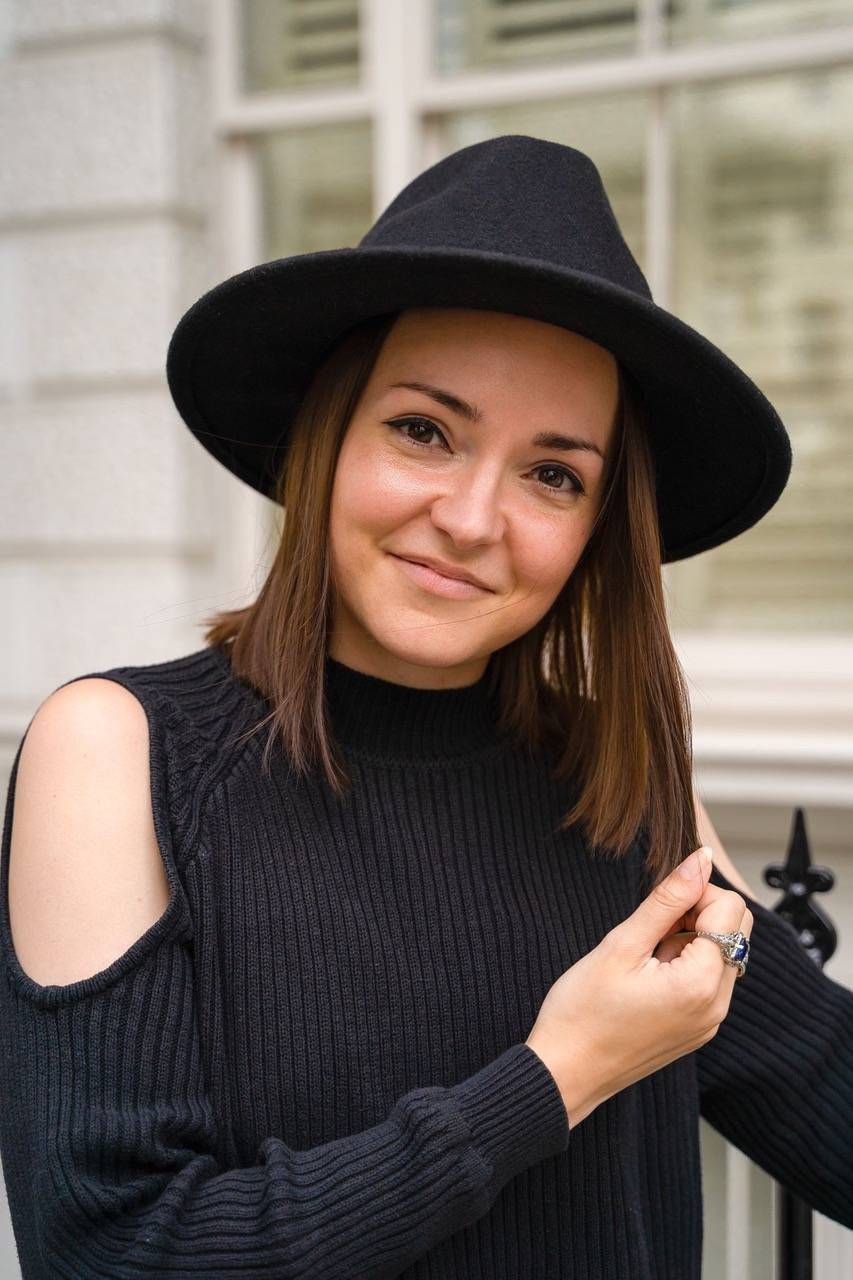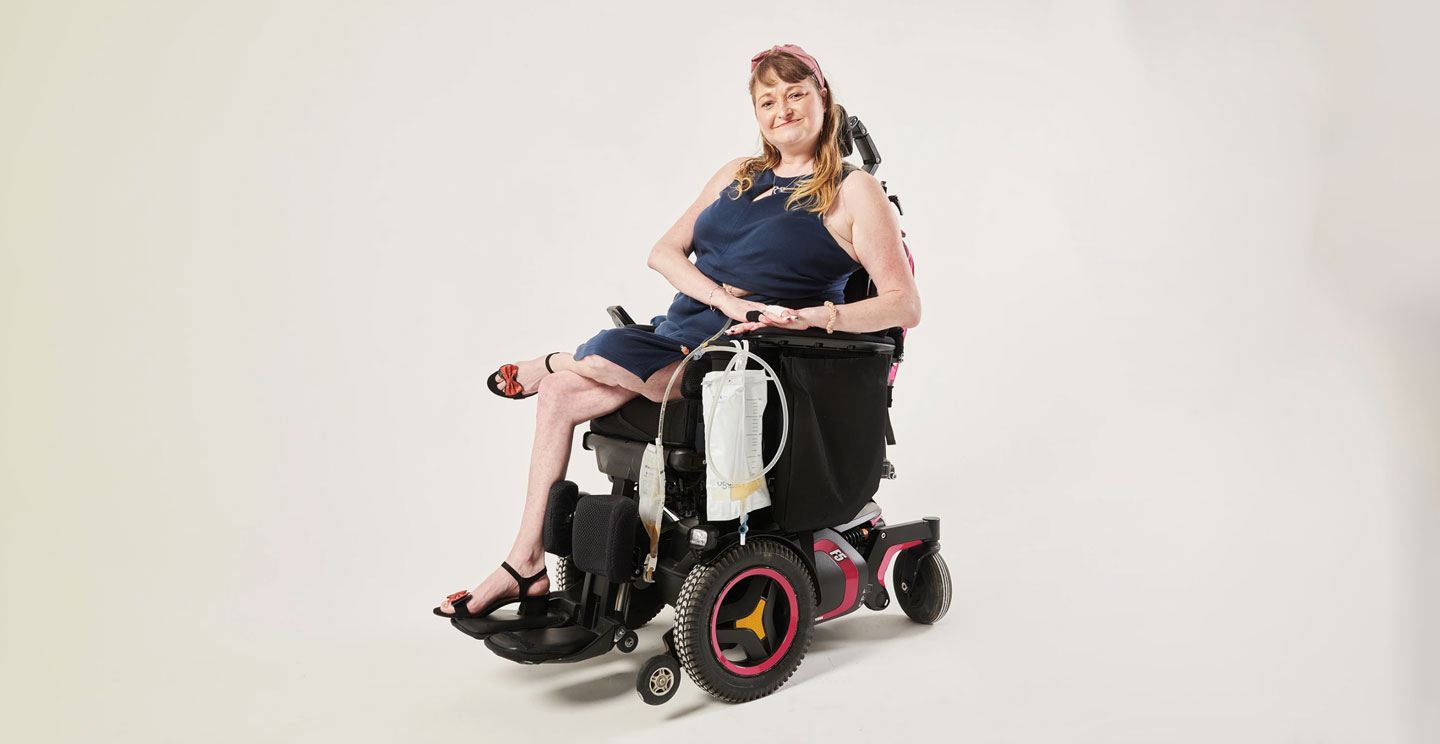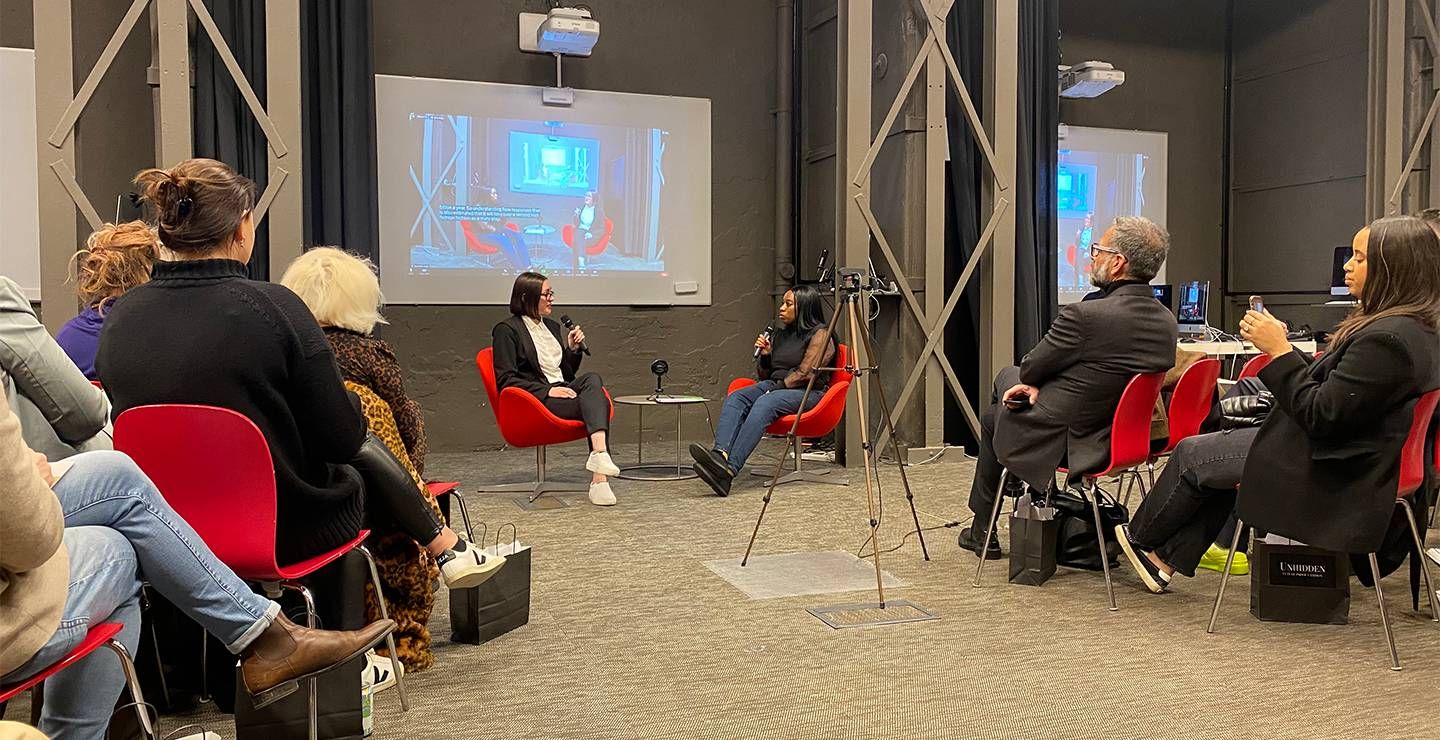


In a world focusing on equality and inclusion, can fashion afford to exclude disability any longer? Now that diversity is finally recognised as a value, brands are trying to teach us not to hide what sets us apart. It’s 2022, and it’s long overdue.
But what may seem so obvious today was not that obvious in 2008, when Victoria Jenkins graduated in Fashion Design at Istituto Marangoni London. However, after a chance encounter with a woman with cancer that changed the course of her life, this talented garment technologist who became disabled in her 20s started working to solve the problem and came up with the idea of founding Unhidden.
Unhidden is the first disabled owned and inclusive fashion brand to join the British Fashion Council. «Universal fashion for all» is the claim of the label, founded in 2016 and appointed Female start-up of the year 2021. With 14 years’ experience in the industry, Victoria Jenkins is truly a pioneer for change in fashion, taking forward her essential work with elegance, craft and beauty. «I have worked with many household name brands, from the high street to high end, over my career», she said. «When I became disabled, it should have been then that I realised that none of my old clothes adjusted to my new needs».

Victoria Jenkins
During a 10-day hospital stay in 2016, Victoria met a fellow patient who switched on the light bulb. The woman had survived cancer, but it left her with multiple other conditions: she had openings in her stomach to release waste, called a stoma, and she also had lines in her arm to deliver medicine. She was in the hospital to have a chest port fitted. Every time the doctors came round, she had to remove all her clothing, usually in front of the whole team. She couldn't even access her stoma, arm line or chest port without removing clothing or exposing herself in some way in her daily life.
«Pyjama tops and loungewear were her only options, but she told me she wanted to dress in nicer clothes, but nothing would adapt», Victoria Jenkins explained. «I remember watching her from the other side of the ward and thinking ‘There must be companies out there to help’. But Google returned few results». In that hospital, in front of that amazing lady, the idea behind Unhidden was finally born.

A look from Unhidden's first capsule collection
The capsule collections for men and women are made in Bulgaria from dead-stock cloth (excess cloth from other retail companies, which would otherwise end up in landfills). They include a unisex T-shirt with the Unhidden logo, twill trousers and a silk shirt in black or white and can be worn by everyone, but come with built-in adaptations that can help people with disabilities. A wrap top and a double layer dress were designed for her, while a white cotton shirt and a T-shirt with wrap sleeves is specially made for him. But with some special tricks.
Openings in the arms for the 17 million cancer patients worldwide to receive treatment without undressing. Snap fastenings instead of buttons for the 14 million people with rheumatoid arthritis – and therefore reduced dexterity. «Dignity and function do not need to compromise style, and people should not expose themselves to access their own bodies», Jenkins said. «For people post-surgery, post-pregnancy or with lifelong conditions involving catheters or feeding tubes or stomas, there is little choice but to wear stretch trousers. Being unable to dress how they want and need to means not going for that job interview and not showing up for social events dressed how they want».
50.000 people around the world have temporary or permanent chest ports that keep them alive at various stages in their lives, and many more have them whilst in hospital. There are 75 million people worldwide who use a wheelchair – that is 1% of the global population. Furthermore, 3 million people globally live with a colostomy bag, and they should not have to undress to access their bodies: simple adaptations allow 3 million more people to take part in fashion.

Victoria Jenkins' talk with Istituto Marangoni students in London
But what can other brands do to help create a more inclusive fashion? «Step one is to ask us. If you have a brand, you already have disabled consumers; but you will have a more forceful following if you start asking the community directly. Let us be included», Victoria Jenkins explained at an event hosted by Istituto Marangoni London during London Fashion Week, a live talk and Q&A session where the audience and the students from the academy had the opportunity to find out more about this innovative project.
«Fashion has a responsibility to represent the global population and has great power to change how you think and view diversity. But the problem is that the industry has collectively left out 1 in 5 people in the UK that don’t have the same choice as everyone else to dress how they really want to», the designer said. «Unhidden is a socially responsible brand that represents a solution for the future of fashion. Why design something only one body type can wear? It is wasteful, exclusionary, and misses out on a massive market with incredible spending power. A market that has the right to take part in fashion, expression and self-identity».
Future plans for Unhidden include a not-for-profit arm training people with disabilities and chronic health conditions on how to sew adaptive alterations, so they can then work as and when they choose to make adaptive alterations for anyone who cannot sew. Workshops are coming soon to cover how to adapt clothing you already own yourself, so there is no barrier to accessing adaptive clothing and re-loving your existing wardrobes.
Victoria Jenkins is also a brand ambassador for Models of Diversity and co-founder of No Comment Required, an ethical slogan clothing range focusing on positive representation for people with mental health issues and disabilities, and all marginalised groups.
Clementina Bianchi
Editor



